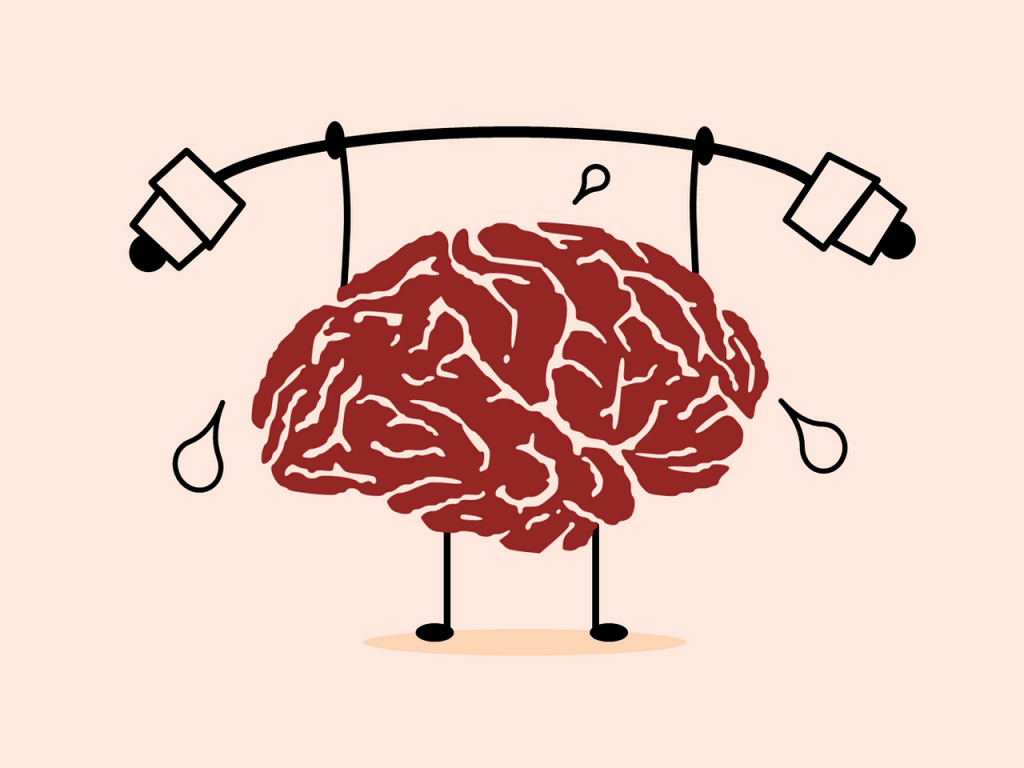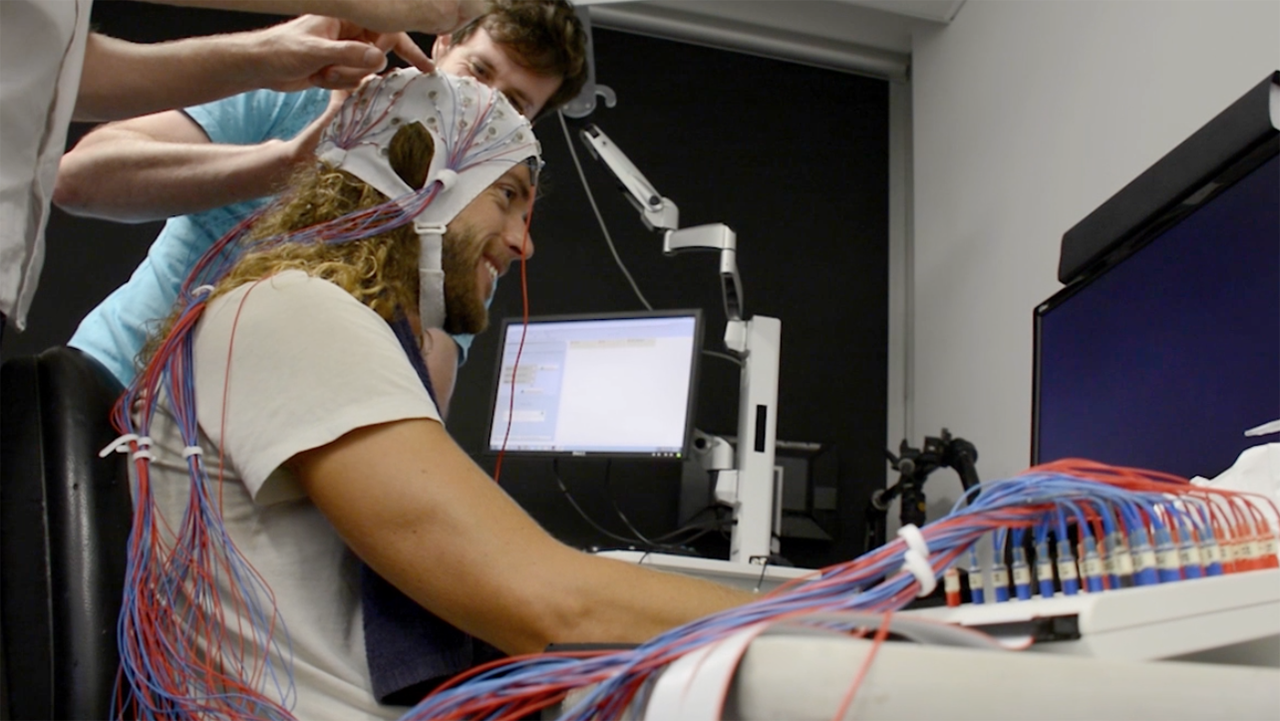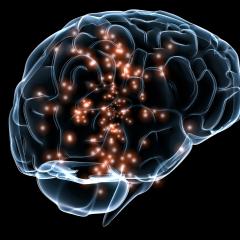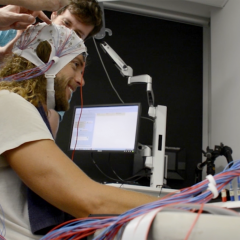
In the past decade, interest in increasing our brain power has cultivated a multibillion dollar industry offering various products to improve cognitive ability. Online ‘brain training’ tools can improve performance on specific mental tasks through repetition. Battery-operated devices can be used to stimulate the brain via electrodes on the wearer’s scalp. However, how well these products boost general brain performance – on their own or in combination – remains unclear.
Postdoctoral fellow Hannah Filmer and her colleagues, QBI's Professor Jason Mattingley and Associate Professor Paul Dux from the UQ School of Psychology – tested whether applying non-invasive brain stimulation during brain training could enhance general cognitive performance.
Participants trained on a specific task over four consecutive days while receiving transcranial direct current stimulation (tDCS), a form of neurostimulation delivers a constant, low current to the brain area of interest via electrodes on the scalp. At the end of training, they were re-tested on the same task as well as on an unrelated task.

Sustained improvements after brain training
Using mathematical modelling, the researchers found that the participants’ performance had significantly improved – not just on the task they’d practised, but also on the unrelated task. This general benefit was still evident two weeks after the end of training.
The researchers’ results suggest that the combination of brain training and tDCS works by enhancing the brain’s ability to acquire and process information efficiently. This has important implications not only for understanding how the brain changes with experience, but also for treating people at risk of cognitive decline – such as the elderly, or individuals with neurological problems.
What's next?
The team hopes to assess the full extent of the benefits from combined brain training and tDCS using a wide range of cognitive tasks. This approach can then be applied in a clinical setting, to find out whether tDCS may stave off – or even reverse – cognitive decline.
The research, published in Cerebral Cortex, is available to read online.
This article was originally published on The Brain Dialogue. Read the original article.





